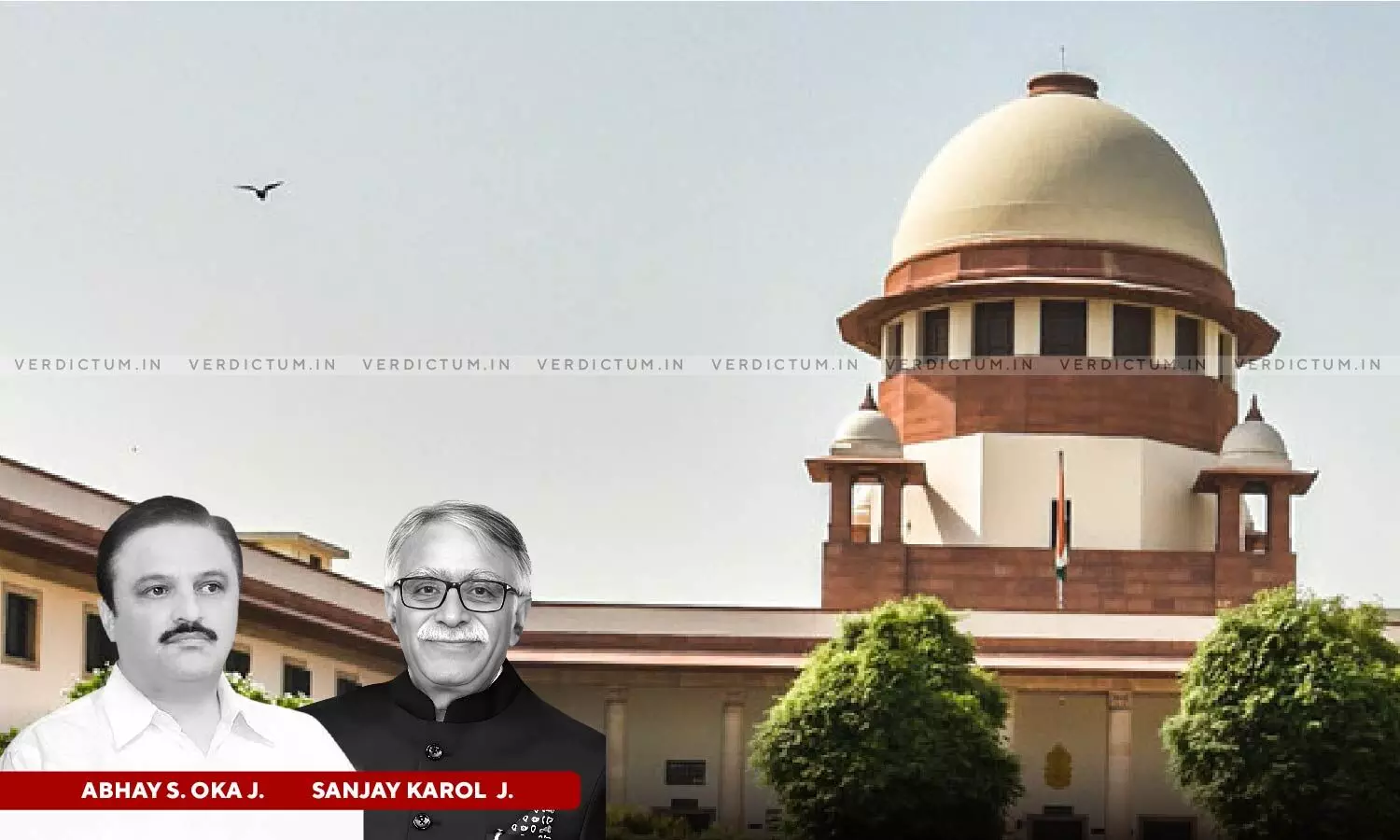
Mere Long Period Of Possession Does Not Translate Into Right Of Adverse Possession: Supreme Court
 |
|The Supreme Court in a case relating to the land dispute has observed merely a long period of possession, does not translate into the right of adverse possession
The Court was dealing with an appeal against the judgment passed by the Kerala High Court by which the findings returned in the First Appeal by the District Judge were overturned and the land, the subject matter of dispute, was stated to be rightfully belonging to the respondents by virtue of principle of adverse possession.
The two-Judge Bench comprising Justice Abhay S. Oka and Justice Sanjay Karol held, “An estimation of age of the trees cannot be, by any stretch, termed as sufficient proof required to disturb the title that undisputedly rests with the Government as also testified by PW-1 and PW-2. Proper and concrete proof as required would need for the claimants to show some proof of possession, other than statements which may be vague. It is also clear from the above discussion that merely a long period of possession, does not translate into the right of adverse possession.”
The Bench said that surmises, conjectures, and approximations cannot serve as the basis for taking away the right over land resting with the State and placing the said bundle of rights in the hands of one who did not have any such rights.
Advocate Nishe Rajen Shonker appeared for the appellants while Advocates P. Vinay Kumar and K. Parameshwar appeared for the respondents.
Brief Facts -
The property, the subject matter of dispute was stated to be Government Puramboke land. The case put forward by the respondents, (claimants of adverse possession) against whom the appeal was filed, was that a person named Joseph had acquired title to the land of which he had been in possession and in continued enjoyment of, since 1940. The Tahsildar issued notice to the claimants for unauthorised occupation of Government land in 1982, and thus began the long-standing litigation. Joseph-the original occupier passed away and the Assistant Collector dismissed the appeal filed against the order of the Tahsildar.
The legal representatives of the claimants filed a suit for injunction and the Court of the Munsiff allowed the suit and confirmed its original decree with a judgment and order in 1990. On the first appeal, the judgment and decree passed by the Trial Court was set aside. On a second appeal, the judgment of the Munsiff Court was upheld, granting the claimants adverse possession over the land in question and, overturning the judgment rendered by the Court of First Appeal.
The Supreme Court in view of the above facts noted that the dispute must be examined from two angles. One, whether the Judgment impugned, arising out of Second Appeal meets the established criteria for Second Appeal or not?; and two, whether the respondents are entitled to the relief of adverse possession or is the claim so made, barred by the Kerala Land Conservancy Act, 1957?
The Court observed that as per the testimonies, consistency is lacking in terms of the age of the rubber trees as certain witnesses claim the age to be 15 years while others claim the same to be 18 years.
“It is a matter of record that proceedings of ejectment of the claimant stood initiated before the concerned Tehsildar in which claimant neither pleaded nor claimed title by way of adverse possession. To the contrary, the unauthorised occupation was not disputed, with the only plea being taken of having planted certain trees (rubber trees), put to use for rubber tapping”, said the Court.
The Court further noted that the Tehsildar had passed an order directing the claimant to not only vacate the land but also to pay compensation amounting to Rs. 354/- and that such facts were never referred to in the plaint.
“Noticeably, the order passed by the Tehsildar or the Assistant Collector was never ever subjected to challenge by the claimants either by resorting to the mechanism provided under the Act nor in the suit, the subject matter of consideration. … It is for the first time in the written statement that the factum of passing the order under The Act was brought to the notice of the Civil Court which fact was neither refuted to nor explained by way of replication”, added the Court.
The Court held that the rubber trees were planted just about 15 to 18 years prior to the date on which the depositions were recorded. Therefore, the Court concluded that the findings returned by the High Court holding the witnesses to have established the claimants by way of adverse possession is erroneous.
Accordingly, the Apex Court allowed the appeal, set aside the impugned judgment of the High Court, and restored the judgment of the First Appellate Court.
Cause Title- Government of Kerala & Anr. v. Joseph and Others (Neutral Citation: 2023 INSC 693)